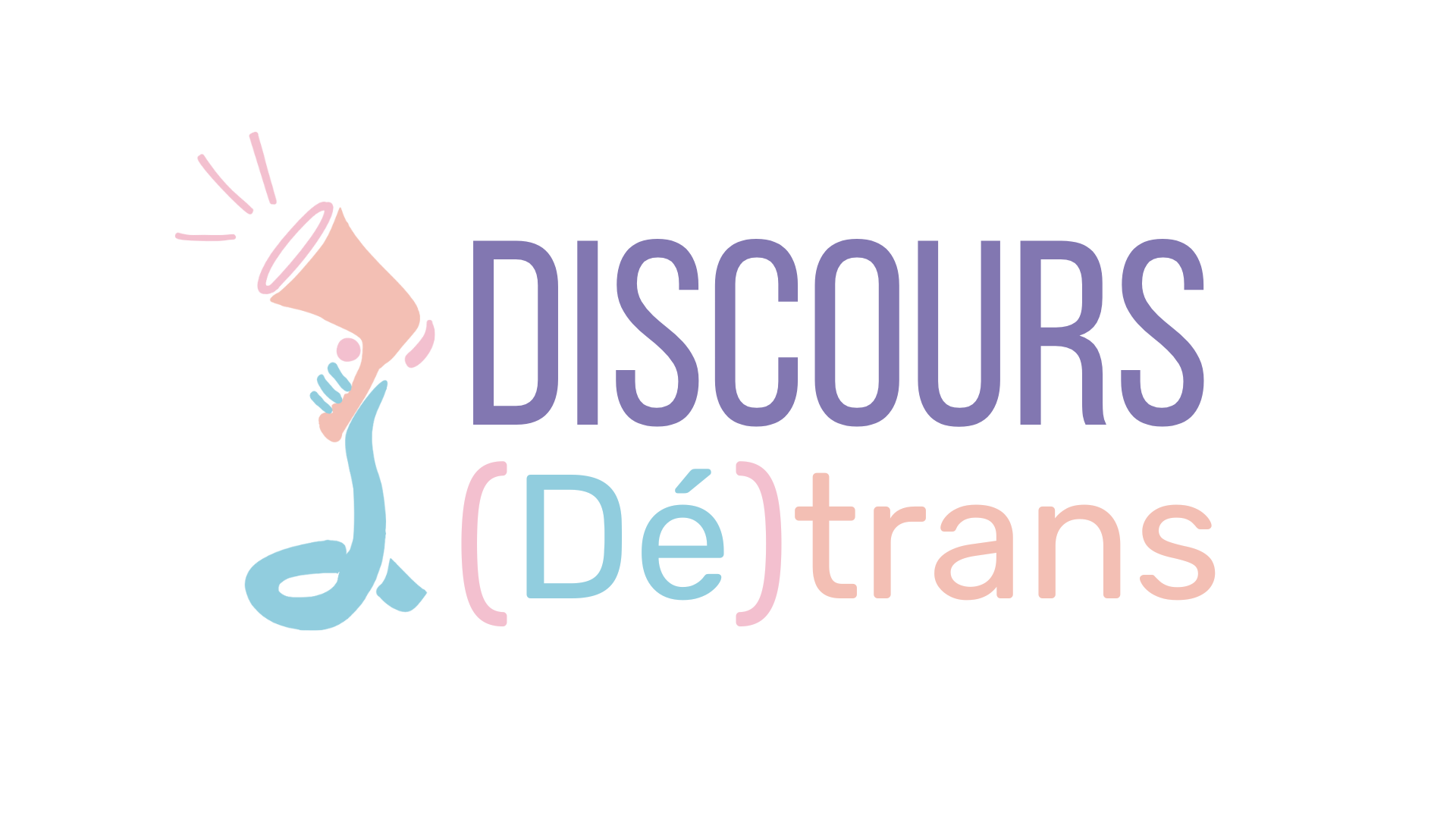
FOR A TRANS-AFFIRMATIVE UNDERSTANDING OF THE PHENOMENA OF DISCONTINUOUS GENDER TRANSITIONS AMONG YOUNG PEOPLE WITH TRANS AND NON-BINARY GENDER BACKGROUNDS.
Researchers : Annie Pullen Sansfaçon (UdeM), Denise Médico (UQAM), Alexandre Baril (UOttawa), Mélanie Millette (UQAM), Olivier Turbide (UQAM). Coordonator : Morgane Gelly (UdeM). Employees : Tommly Planchat (UdeM), Edith Paré-Roy (UQAM), Élio Gravel (UdeM), Elya Chartrand-Deschamps (UQAM), Sidonie Atgé-Delbays (UdeM), Marielle Aithamon (UdeM). Collaborators : Françoise Susset (Meraki Health Center), August Paradis (Consultant), Gender Creative Kids Organization. Funded by SSHRC.
Over the past decade, we've heard more and more about young people who self-identify as trans (whose gender does not correspond to the one assigned at birth). In order to live in accordance with their gender identity, some young people make a legal, social or medical transition. While most young people seem to be continuing with these transitions, a small proportion say they have or want to "de-transition" or discontinue the transitions they have begun. This phenomenon, although poorly documented in scientific research, is widely reported in social media, blogs and press articles. Rooted in a fluid and intersectional trans-affirmative approach, the study offers a fresh look at the notion of detransition, taking into account the dynamic and fluid aspect of the gender affirmation process, as well as the multiple factors of oppression that can interweave and interact with the experience of young trans people.

Exploring Parental Support in Detrans Youth: from Pre-transition To Detransition, a Retrospective Longitudinal Analysis.
Pullen Sansfaçon, A., Aithamon, M., Gelly, M. A., & Atgé-Delbays, S. (2025).

“They’re Unable to See my Decision to Detransition for What it is” : How Detrans Youth Perceive and Receive Discourses on Detransition.
Gelly, M. A., Atgé-Delbays, S., & Pullen Sansfaçon, A. (2025).
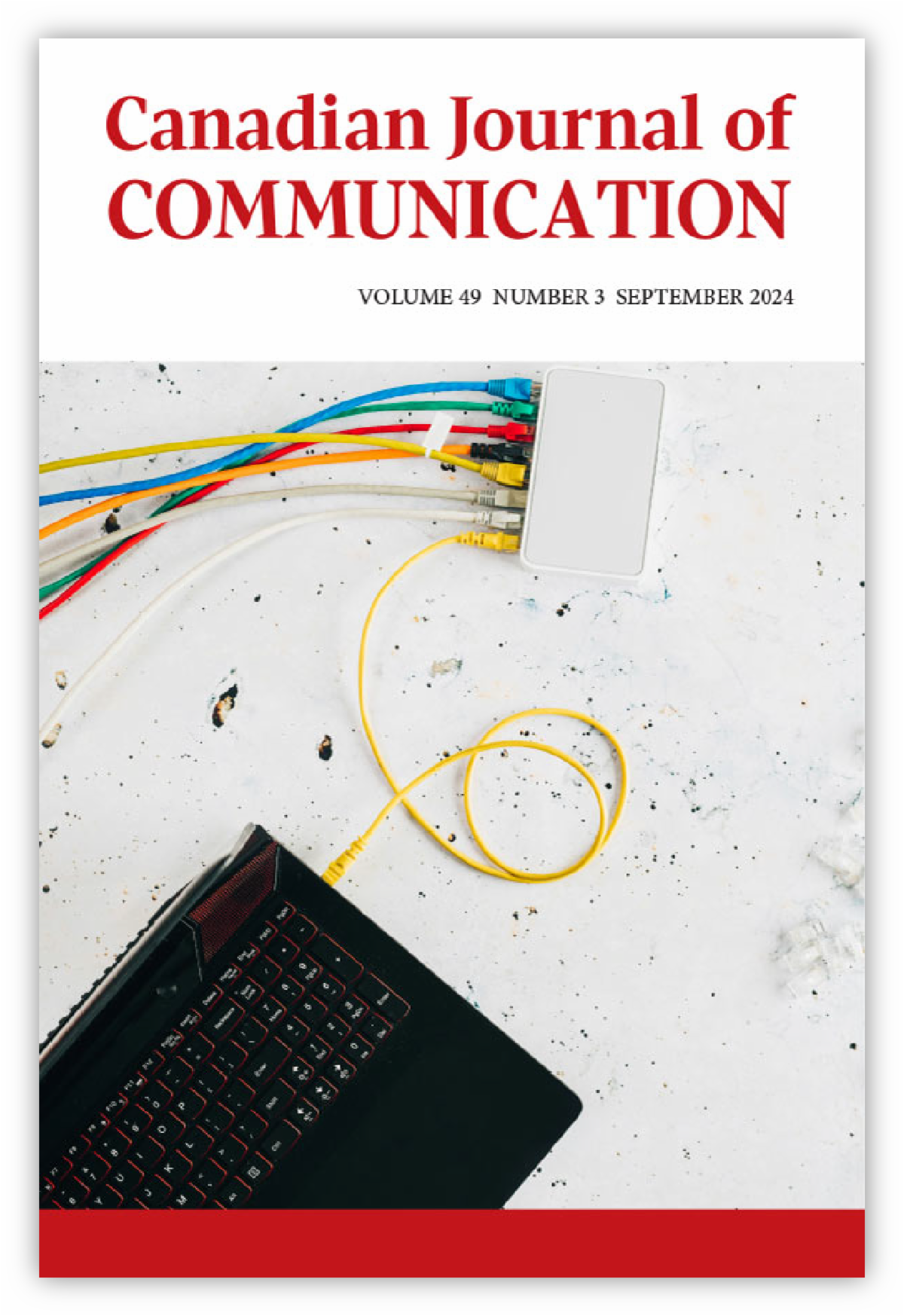
La mise en discours de la détransition sur Twitter (2017–2020).
Millette, M., Turbide, O., Paré-Roy, E., Chartrand-Deschamps, E., & Pullen Sansfaçon, A. (2024).
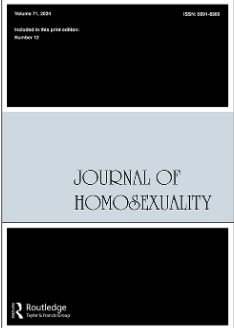
Gender-related medical experiences of youth who have detranstioned.
Gelly, M. A., Atgé-Delbays, S., Gravel, É., & Pullen Sansfaçon, A. (2024)

Exploring the practice principles and beliefs of trans-care providers working with trans and detrans youth.
Pullen Sansfaçon, A., Lapierre, M., Millette, M., Planchat, T., Gelly, M. A., & Médico, D. (2024).

Regards sur les difficultés vécues lors de la transition chez les jeunes ayant détransitionné.
Pullen Sansfaçon, A., Gravel, E., & Gelly, M. A. (2024).

A retrospective analysis of the gender trajectories of youth who have discontinued a transition.
Pullen Sansfaçon, A., Gravel, É., Gelly, M., Planchat, T., Paradis, A., & Medico, D. (2024).

Dealing With Scam in Online Qualitative Research : Strategies and Ethical Considerations.
Pullen Sansfaçon, A., Gravel, E., & Gelly, M. A. (2024).
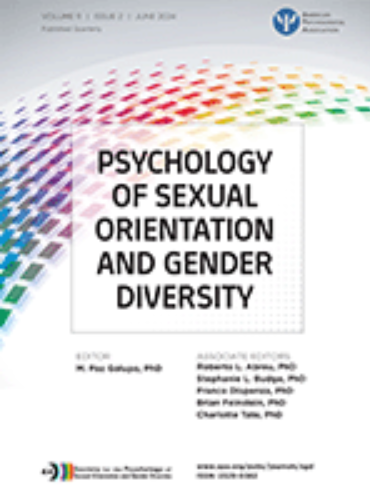
Understanding the experiences of youth who have discontinued a gender transition : Provider perspectives.
Pullen Sansfaçon, A., Planchat, T., Gelly, M. A., Baril, A., Susset, F., & Millette, M. (2023).

A nuanced look into youth journeys of gender transition and detransition.
Pullen Sansfaçon, A., Gelly, M. A., Gravel, R., Medico, D., Baril, A., Susset, F., & Paradis, A. (2023).
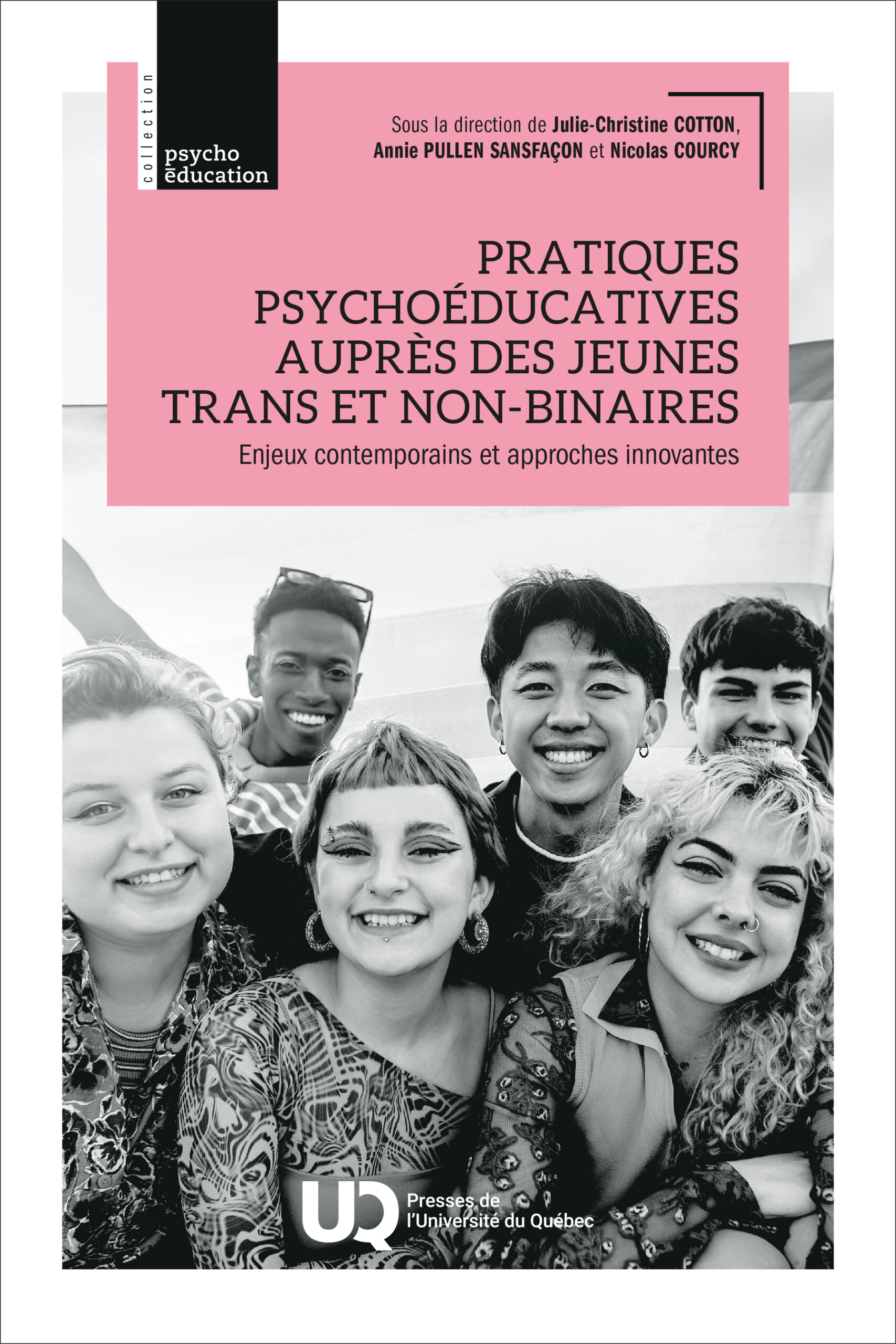
Les jeunes qui discontinuent leur transition.
Pullen Sansfaçon, A., Gelly, M.A. Planchat, T. Medico, D. Susset, F. Millette, M. Baril, A. et Turbide O. (2024).
Pratiques psychoéducatives auprès des jeunes trans et non-binaires : Enjeux contemporains et approches innovantes (Cotton, J.C, Pullen Sansfaçon, A et Courcy, N.)
